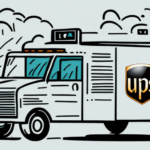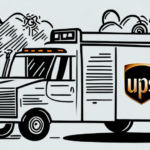Understanding the Cost Structure of UPS Shipping Rates
To effectively reduce your UPS shipping costs, it's essential to comprehend how UPS calculates its shipping rates. UPS considers several factors, including:
- Package Weight and Dimensions: Heavier and larger packages typically cost more to ship.
- Shipping Distance: Longer distances generally incur higher rates.
- Service Level: Expedited services like Next Day Air are pricier than standard ground shipping.
- Additional Services: Options such as insurance, delivery confirmation, and signature requirements can add to the overall cost.
Understanding these components allows businesses to make informed decisions when planning their shipments, potentially leading to significant cost savings.
Strategies to Negotiate Better Shipping Rates with UPS
Negotiating better rates with UPS can lead to substantial savings, especially for businesses with high shipping volumes. Here are some effective strategies:
Leverage Shipping Volume
Businesses that ship large volumes of packages can negotiate tiered discount rates. According to UPS, regular shippers with substantial volume commitments are more likely to receive favorable pricing (UPS Volume Pricing).
Maintain a Good Payment History
Consistently paying invoices on time and maintaining a positive relationship with UPS can enhance your negotiating power. Reliable payment practices demonstrate trustworthiness and can lead to better rate discussions.
Explore Alternative Services
UPS offers various services beyond standard shipping, such as freight and international options. Evaluating these alternatives can help find cost-effective solutions tailored to specific business needs.
Tips for Reducing UPS Shipping Costs
Implementing the following tips can help businesses lower their UPS shipping expenses:
Consolidate Shipments
Combining multiple shipments into a single package reduces the overall weight and dimensions, leading to lower shipping costs.
Choose Ground Shipping
UPS Ground is often the most economical option for businesses that do not require expedited delivery. It offers reliable delivery times at a lower cost compared to air services.
Utilize UPS Discounts and Promotions
Regularly check for UPS promotions and discount programs. Joining UPS's loyalty programs can provide access to exclusive rates and rewards.
Qualifying for UPS Shipping Discounts
UPS offers various discounts to businesses that meet specific criteria. Understanding and meeting these requirements can unlock significant savings.
Volume-Based Discounts
Businesses that consistently ship high volumes can qualify for volume-based discounts. These discounts increase as shipping volumes grow, providing greater savings for larger businesses.
Industry-Specific Discounts
UPS provides tailored discounts for industries such as healthcare, automotive, and retail. These discounts address the unique shipping needs of each sector, ensuring cost-effective solutions.
Adopt UPS Technology Solutions
Using UPS WorldShip or UPS CampusShip can make businesses eligible for additional discounts. These platforms streamline shipping processes and offer enhanced rate options.
Optimizing Package Weight and Size
Reducing the weight and dimensions of packages is a straightforward way to lower shipping costs with UPS.
Use Efficient Packaging Materials
Choose lightweight, durable packaging materials that protect goods without adding unnecessary weight. UPS provides packaging guidelines and resources to help businesses optimize their packaging (UPS Packaging Guidelines).
Implement Flat-Rate Shipping Options
For items that fit specific size criteria, flat-rate shipping can be a cost-effective option. UPS offers various flat-rate packaging solutions that simplify pricing and budgeting.
Utilize UPS's Online Shipping Calculator
Before shipping, use the UPS Shipping Calculator to estimate costs based on package weight and size. This tool helps businesses make informed decisions about their shipping methods (UPS Shipping Calculator).
Leveraging Technology to Save on UPS Shipping Costs
Incorporating technology into your shipping operations can lead to increased efficiency and reduced costs.
Adopt Shipping Software
Third-party shipping software can integrate with UPS systems to automate and streamline the shipping process. Tools like ShipStation or ShippingEasy offer features such as batch processing and rate comparison, enhancing operational efficiency.
Use UPS Online Tools
UPS provides various online tools, including UPS My Choice and UPS WorldShip, which help manage shipments more effectively and access exclusive discounts.
Optimize Routing and Scheduling
Utilize UPS's routing tools to plan the most efficient delivery routes. Efficient routing reduces transit times and fuel consumption, leading to lower shipping costs.
Saving Money on International Shipments with UPS
International shipping can be costly, but several strategies can help businesses reduce these expenses:
Use UPS Consolidation Services
Grouping multiple international shipments into a single package can lower per-item shipping costs. UPS consolidation services manage the bundling process, ensuring cost-effective international transport.
Select Economy Shipping Options
Opt for UPS International Economy when speed is not a priority. This service offers lower rates with longer delivery times compared to expedited international shipping options.
Understand Customs and Duties
Properly classifying goods and understanding customs requirements can prevent unexpected fees and delays. Utilizing UPS's customs brokerage services ensures compliance and cost efficiency (UPS Customs Brokerage).
The Benefits of Using UPS for Your Shipping Needs
Choosing UPS as your primary shipping carrier offers numerous advantages beyond cost savings:
Comprehensive Service Offerings
UPS provides a wide range of services, including international shipping, freight transportation, and supply chain solutions, catering to diverse business needs.
Reliability and Tracking
UPS's robust tracking systems ensure that businesses and their customers can monitor shipments in real-time, enhancing transparency and trust.
Commitment to Sustainability
UPS is dedicated to reducing its carbon footprint through initiatives like alternative fuel vehicles and optimized delivery routes, allowing businesses to align with sustainable practices.
Comparing UPS Shipping Rates with Other Carriers
To ensure you're getting the best value, it's crucial to compare UPS rates and services with those of other carriers like FedEx and USPS.
Evaluate Cost vs. Service
While one carrier might offer lower rates, another may provide faster delivery or better tracking features. Assess your business priorities to make an informed choice.
Consider Carrier Reliability
Research carrier reliability and customer satisfaction. Reliable carriers reduce the risk of lost or delayed shipments, which can save costs associated with returns and customer dissatisfaction.
Use Rate Comparison Tools
Utilize online tools and software to compare shipping rates across multiple carriers. This approach ensures that you select the most cost-effective and reliable option for each shipment (ShipStation Rate Comparison).
Conclusion
By understanding the factors that influence UPS shipping rates and implementing strategic measures, businesses can significantly reduce their shipping costs. From negotiating better rates and optimizing packaging to leveraging technology and exploring discounts, these strategies provide a comprehensive approach to cost-effective shipping. Additionally, comparing UPS with other carriers ensures that your business always benefits from the best possible shipping solutions.






















